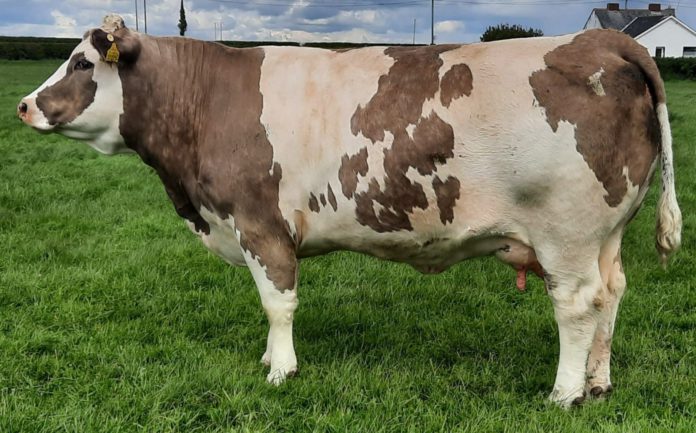The DAFM must provide “adequate” funding to farmers following its move to introduce compulsory bovine EID tagging from next year.
That is according to IFA animal health chairman Pat Farrell, who spoke following McConalogue announcement earlier this week.
Bovine EID
The DAFM will implement Bovine EID in two stages:
- Firstly, from January 1st, 2022: All approved bovine tag suppliers will be required to supply an EID tag with all new tag orders. Each new tag set will include one EID tag and one tissue tag. EID tags will be white in colour. The colour of conventional and tissue tags will remain yellow.
- Also, from July 1st, 2022, it shall be a legal requirement for herd keepers to officially identify all newborn calves with a tag set containing an EID tag.
€2.5m in direct costs
At an additional cost of €1.05-€1.10, Pat Farrell said that compulsory bovine EID tagging “adds over €2.5m in direct costs to suckler and dairy farmers for tags alone before the purchase of readers is factored in”.
“While there are management benefits for some large farms, these farms can and are already using EID.”
“The vast majority of suckler and dairy farms will only experience increased costs for tags and readers.”
“Meat factories, factory feedlots, exporters, marts, Department of Agriculture inspectors and vets will accrue the benefits from compulsory EID,” he added.
Compulsory Bovine EID not an EU requirement
Meanwhile, he stated that compulsory Bovine EID is not an EU requirement and is, therefore, a “Department of Agriculture decision”.
“EID does not enhance the cattle traceability systems already in place in Ireland. EU legislation requires that all bovines are to be tagged within 20 days of birth and registered on the Department’s Animal Identification and Movement (AIM) database within seven days of tagging.”
He said the AIM database is already providing “an accurate and comprehensive database” detailing the:
- Origin;
- Identity;
- Movement;
- Also, the life history of all cattle born in or imported into the country “without the need for compulsory EID”.
Furthermore, IFA has previously highlighted these issues in its submission and in meetings with DAFM.
“The vast majority of benefits associated with EID tagging will not be experienced by the farmer.”
“Many farmers are already in a very low-income enterprise. It is vital that any additional cost being enforced on them is fully covered.”
Additionally, he said that farmers, who have already purchased stocks of non-EID tags must be facilitated past the July 1st, 2022 deadline.





